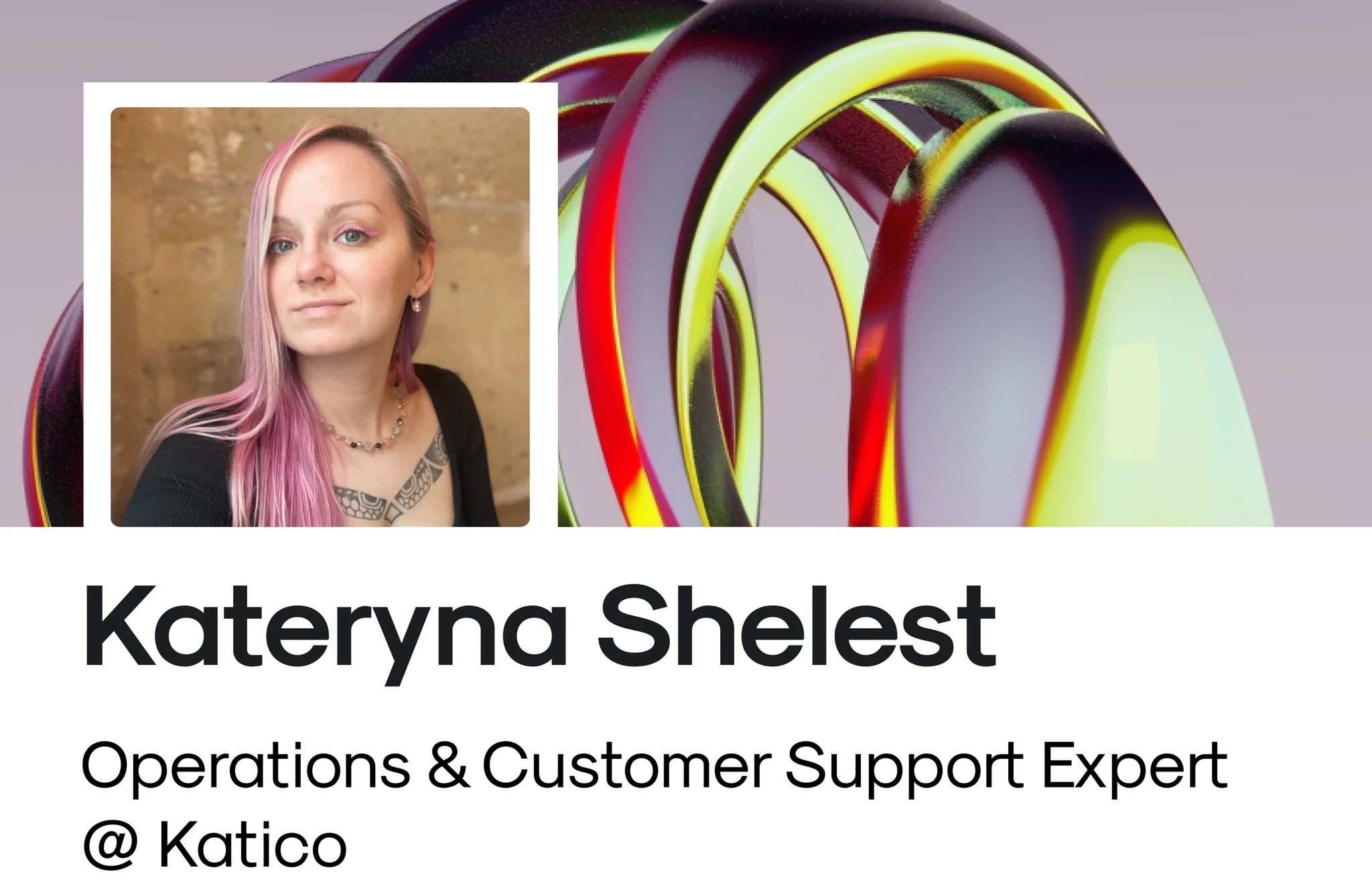Spotlight: Kateryna Shelest @ Katico
Giving the Spotlight to 🔆Kateryna Shelest 🇺🇦🔆, whose work is transforming customer support operations! Kate brings over a decade of support experience and has helped build multiple support departments from the ground up.
What do most people get wrong about Customer Support?
That it’s a basic function anyone can do. That all it takes is an FAQ and the ability to pass a ticket to the right team. But a great support team? They know the product, policies, and internal processes inside out. They spot patterns in customer behavior and communicate insights clearly to other teams. Most speak multiple languages and use them daily. They're tech-savvy because they need to juggle at least 3-4 interconnected tools just to assist customers properly. And in SaaS? Many can read or even write code. So no, support is not “just answering tickets.” It’s a complex, skilled role that touches every part of the company.

What's a mistake you made early in your career, and what did you learn from it?
I became Head of Support unexpectedly. I was a project manager’s assistant, not a support agent climbing the ladder. At first, I pushed my team hard toward KPIs, partly because that’s what I saw from leadership above me. I treated people more like resources than humans, and it didn’t sit right with me. I’m a serving leader at heart. When I started involving my team in decisions, trusting them, and focusing on what they needed to do great work everything changed. Support got better. People became more engaged. And the pressure turned into genuine motivation.
How do you foster a strong culture within your support teams?
We built our company values around who we are, not what sounds good on a poster. And we hire with those values in mind. That’s why we don’t have to force culture, it happens naturally. My team sees it daily: we respect each other, we don’t bullshit, and we handle issues like humans. We stay connected without overdoing it. We have 1:1s when it makes sense, not just to tick a box. We celebrate good work, send merch people actually want, and keep our standards high because doing great work feels good, not because someone’s watching.
What's one perspective that can transform how frontline teams work?
Seeing the bigger picture. People assume that’s just for upper management, but honestly? Frontline teams need it just as much. When support agents understand how their work connects to company goals and how the whole customer journey works (from first touch to feature requests to resolution) they start to see the why behind the work. It builds ownership, empathy, and a sense of purpose. And often, it helps them figure out where they want to grow next. Career clarity starts with context.











